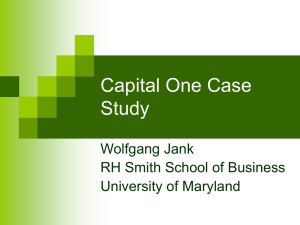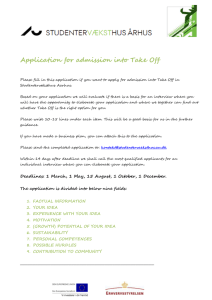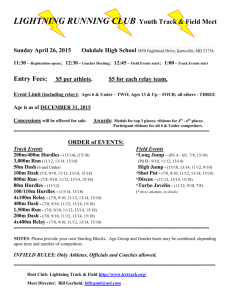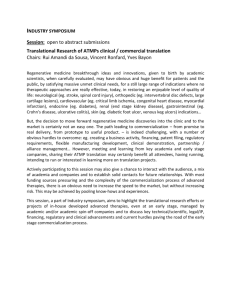Overcoming North American Trade Hurdles
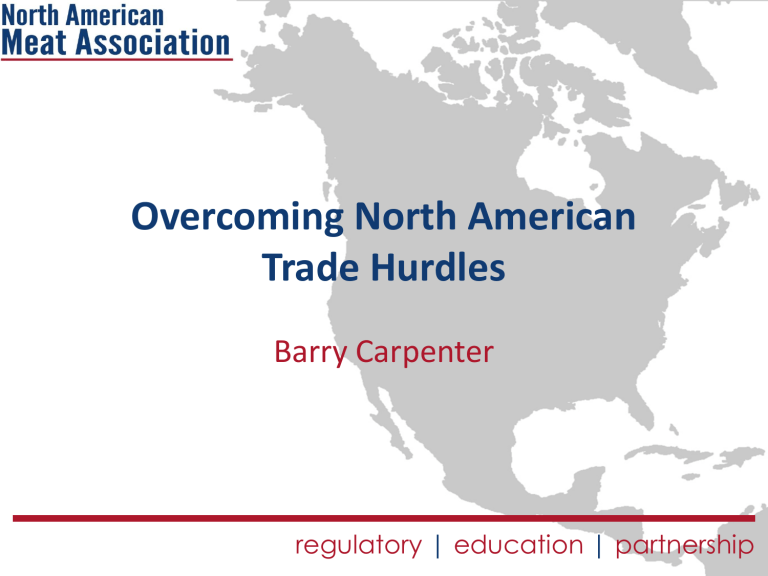
Overcoming North American
Trade Hurdles
Barry Carpenter regulatory | education | partnership
2014 Global Meat Trade Exports in Million Tons
20
15
30
25
Poultry
10
Pork
5
Beef
0
2005 2006 2007 2008 2009 2010 2011 2012 2013 2014
USDA-FAS: 2014 Livestock and Poultry: World Markets and Trade
Beef Statistics
USDA-FAS: November 2013 Livestock and Poultry: World Markets and
Trade
Livestock Marketing Information Center, Data Source: USDA-FAS
Source: USDA-FAS, CattleFax
Source: USDA-FAS, CattleFax
Pork Statistics
Globally, pork is expected to reach near record highs
USDA-FAS: November 2013 Livestock and Poultry: World Markets and
Trade
Livestock Marketing Information Center, Data Source: USDA-FAS
Lamb Statistics
Globally
Main world exporters are New
Zealand and Australia, by a large margin
United States
Minimal
Exports are down 6%
Most exports go to Mexico and Canada
Canada
Minimal
Top 3 export markets are
Thailand, France and US
Mexico
Net importer
Export mainly to US and Russia
Data Source: USDA-FAS
USDA-FAS: November
2013 Livestock and
Poultry: World Markets and Trade
Broiler Statistics
Livestock Marketing Information Center, Data Source: USDA-FAS
Trade Agreements and Groups
NAFTA
Canada, US and Mexico
Started January 1, 1994
Worlds largest free trade area
450 Million people
17 Trillion in goods and services
Trade Agreements and Groups
US-Canada Regulatory Cooperation Council
(RCC)
Created February 4, 2011
Working on reducing trade hurdles between US and Canada
Joint Action Plan released December 7, 2011
North American Trade History
Hurdles and Challenges
Overall major hurdles and challenges in all areas
Streaming trade processes
Eliminating re-inspection at borders
Country of Origin Labeling (COOL)
Hurdles and Challenges: Policy and
Government
Certification and border inspection needs to be streamlined
Common meat nomenclature
Hurdles and Challenges: Policy and
Government – COOL Timeline
2002 – Made mandatory in Farm Bill
2008 – Amendments to address key problems
2009 – Final rule takes effect
2009 – Mexico and
Canada file official complaint with WTO
2011 – Panel finds in favor of Mexico and
Canada
2012 – WTO finds US out of compliance
2012 – May 23, 2012 compliance date set
2013 – USDA proposes and finalizes rule with no significant changes
Hurdles and Challenges: Policy and
Government – COOL
Hurdles and Challenges: Policy and
Government – COOL
Hurdles and Challenges: Policy and
Government – COOL
Hurdles and Challenges: Policy and
Government – COOL
regulatory | education | partnership
Hurdles and Challenges: Policy and
Government – COOL
Pork Increased Processing
Costs in the US
Beef Increased Processing Costs in the US
Establishments running mixed origin hogs
Increase $6.90 – $8.50 a head
Establishments running only
US hogs
Establishments running imported cattle
Increase $45.50 - $59.00 a head
Establishments running only
US beef
Increase only $1.50 a head
Increase only $0.25 a head
Hurdles and Challenges: Policy and
Government – COOL
If US does not comply, September – December
2014 WTO retaliation proceedings continue and retaliation against US is authorized
Hurdles and Challenges: Policy and
Government – COOL
Possible WTO punishments:
US Taxpayer compensation to
Mexico and Canada
The authorizations of trade sanctions against the US
Mexico and Canada have voiced support in favor of this punishment
Hurdles and Challenges: Animal Health
A common protocol for disease outbreaks needs to be developed
Recognized zones for disease control
Mutual veterinary services
Method to ensure both countries are protected from disease
Still allow bilateral trade in disease free zones
Hurdles and Challenges: Animal Health
A common protocol for veterinary drug plans needs to be developed
Align Maximum Residue
Limits and tolerances
Develop method to inform each other about newly introduced drugs
While maintaining each countries ability to make decisions on new products
Hurdles and Challenges: Meat and
Food Safety
Have equivalent meat product inspection system
Common approach to
food safety
Align food safety systems while protecting human health
Open sharing of information
Government oversight
HACCP
Data
Microbiological
Chemical residue
Hurdles and Challenges: Meat and
Food Safety
Testing practices and procedures
Same food safety laboratory accreditation criteria
Same of acceptable testing regulations
Reliable evidence of test results
Canada lags the US in terms of rapid pathogen testing methods
Hurdles and Challenges: Meat and
Food Safety
Mexico is behind US and
Canada in food safety and system sophistication
January 2014, Mexican government announced that they will provide $50 million to abattoirs and processers
Hurdles and Challenges: Cultural
Hurdles and Challenges: Cultural
Conclusion: Big Picture
Major hurdles facing North American trade:
Country of Origin Labeling
Hurting trade in Mexico, Canada and US
Against WTO regulations
Unnecessary as it is not improving food safety of meat products
Conclusion: Big Picture
Streamlining all processes and regulations
Multiple regulations from each country is confusing and difficult to follow
In some cases, the same test is conducted multiple times by each country, which is unnecessary
Eliminating re-inspection
Waste of money by both countries conducting the same inspection
Unnecessary
Conclusion
Thank you!
Questions?
regulatory | education | partnership

